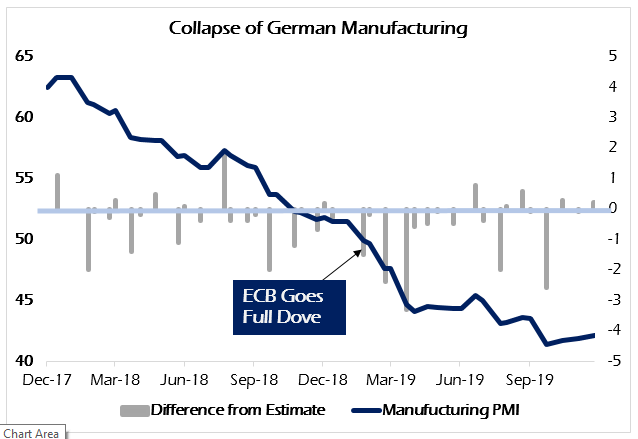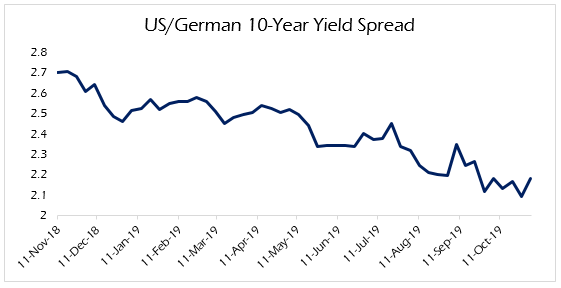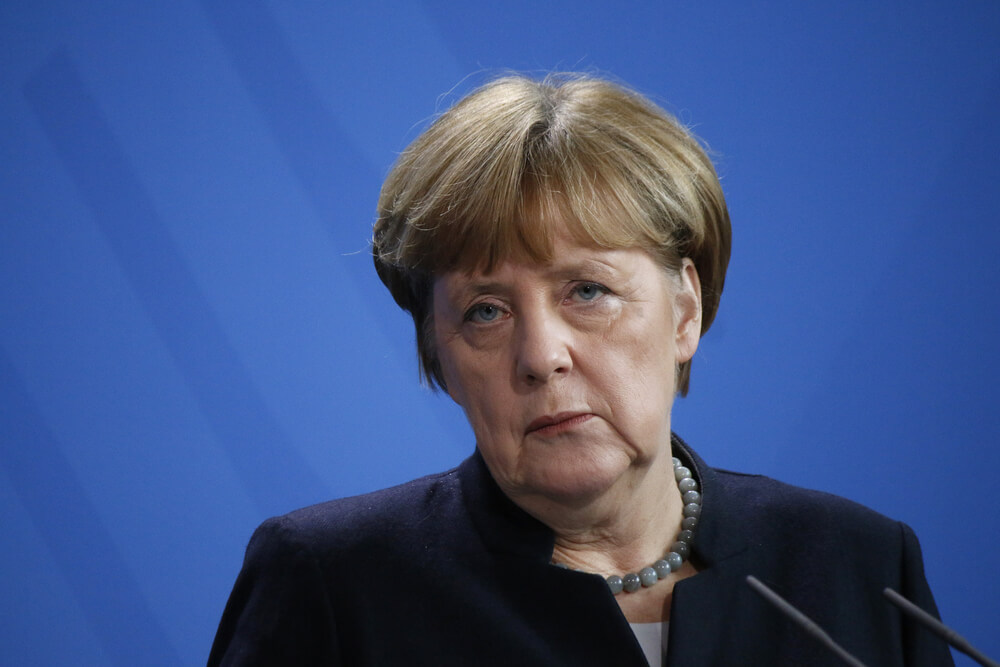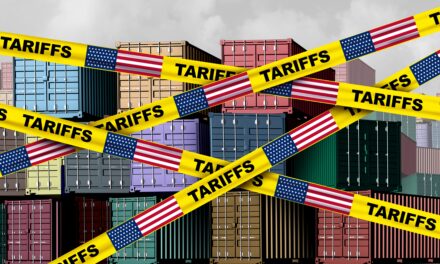Last week the German state of Thuringia went to the polls. The results there were a nightmare for Chancellor Angela Merkel.
The first-pass analysis on what happened in Thuringia was plastered all over the MSM. Far right wing party Alternative for Germany (AfD) bested Merkel’s Christian Democratic Union (CDU).
Oh, the horror. The horror.
The next level of analysis is more complex than that. Most important was this election saw the collapse of both the Social Democrats (SPD) and the Greens, the latter of whom barely scored above the 5% threshold necessary to be represented in the state government.
The SPD are Merkel’s coalition partner in the Bundestag.
The strong showing by Die Linke and AfD makes forming a coalition government in Thuringia without either of them all but impossible. The trouble for Merkel is that she refuses to allow the CDU to partner with AfD because they are pariah Nazis while Die Linke won’t form a coalition with her.
The other parties together can’t command a majority and therefore, due to adherence to globalist dogma on the part of Merkel, there isn’t a stable outcome.
I covered this for Strategic Culture Foundation earlier this week, focusing on the emerging split between the formerly East and West Germany. But even there, as murky as that angle is, it still doesn’t get to the heart of the matter.
The real story is that without an informal alliance with the Greens, Merkel cannot control both houses of the German national government and due to Thuringia, her hold on power is slipping more ominously than anyone in the media, especially German media, are willing to admit publicly.
And, as such, she could easily lose control of the Bundesrat, where the state government delegations vote as blocs to ratify legislation proposed in the Bundestag.
From my blog post on this very issue:
But because of the nature of the Bundesrat, where state delegation must vote as a block, up until Thuringia, the Greens held veto power over 37 out of 69 seats there and could stop all legislation cold.
But those four seats now will likely go to someone else and this defection by CDU party members in Thuringia threatens a constitutional crisis in Germany if AfD make it into the Bundesrat.
So you can see the problems emerging on the horizon for Merkel. Her coalition is faltering. The SPD is becoming irrelevant regionally and is on the path to extinction nationally. The Greens have peaked post-EU elections and with Germany in recession, the center of the political spectrum simply can’t hold.
Moreover, we now have multiple instances of members of Merkel’s CDU openly defying her rule. In Thuringia, 17 CDU local officers are demanding permission to open coalition talks with AfD.
Merkel will not allow that and neither will any of her hand-picked successors. I remember hearing similar rumblings within her sister party the CSU last year leading up to Bavarian state elections.
But worse than that it seems her Finance Minister, Olaf Scholz, who is from the CDU, released his plan to further Germany’s part in the European Union’s financial integration without informing Merkel!
The reason the euro is such a shambles is precisely because of Germany’s insistence on maintaining control over its national monetary policy. Fiscal integration with the rest of Europe, which Germans feel are slothful and profligate is truly anathema, if not verboten.
Merkel has edged toward the EU on this issue but at the same time understands the political ramifications back home.
Rock, meet hard place.
Moreover, as pointed out in the article linked above, not only do we have Scholz going off Merkel’s reservation on EU fiscal policy, we also have new Defense Minister and hand-picked CDU successor Annagret Kramp-Karrenbauer proposing a solution for Northern Syria without consulting Merkel.
This, of course, went behind not only Merkel’s back but Foreign Minister Heizo Maas (he of the SPD), who went off on her. So, we’re seeing even more cracks at the very top of German politics.
It doesn’t help matters that Karrenbauer has failed to rally the CDU since being named Merkel’s successor as party leader, which led to rumors of Merkel taking the party back over after the European elections.
Part of me really wishes I didn’t know half of what I know about German politics, but unfortunately, as Investors we need to understand these subtleties to properly handicap how things will work out over time.
Germany is the most important economy in Europe. It is a mess.
I’ve covered this here before. I warned people back in April that German PMI numbers were a harbinger of more bad news.
It hasn’t improved.

Most importantly, if Germany descends into political chaos the likes of which we haven’t seen since the end of World War II, the markets will not take kindly to this. We’ve been dealing with an incredibly strong safe-haven trade all year. Recently, it’s abated somewhat as presidents Donald Trump of the U.S. and Xi Jinping of China dance around ending the U.S./China trade war.
But that is a distraction from what’s happening in Europe.
And the proof that there is a bifurcation happening within that safe-haven trade is plainly clear in the U.S. Treasury/German Bund yield spread:

No matter what direction U.S. yields are going, and they’re currently on their way up, this year German yields have rising with respect to U.S. yields. Now yields are rising on liquidity concerns while the MSM bangs on about a U.S./China trade deal, but that’s irrelevant. And that trend should continue as Merkel’s domestic political problems multiply.
The markets are only just beginning to wake up to the reality that Merkel is losing control in Germany. Blinded by Brexit and Trump’s wranglings with China seem to be underpricing this risk while this slow motion political collapse plays out.
And the longer they do so, the greater the shock will be when the critical shift occurs. This is why the euro can’t put in a technically significant rally and bond traders keep preferring U.S. debt to German debt.
Slowly and then all at once, that’s how markets collapse.
It always happens that way. It will happen that way again.
• Money & Markets contributor Tom Luongo is the publisher of the Gold Goats ‘n Guns Newsletter. His work also is published at Strategic Culture Foundation, LewRockwell.com, Zerohedge and Russia Insider. A Libertarian adherent to Austrian economics, he applies those lessons to geopolitics, gold and central bank policy.




